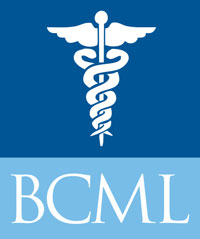With many Canadians spending the majority of their waking hours looking at a screen, our eyes go through a lot of strain. This is especially true if you have a job that requires you to be on a computer for a large portion of your day. However, eye care is important for everyone. Even those with outdoor jobs must consider the effect of sunlight and the elements on their eyes.
Fortunately, there are things you can do to reduce strain and keep your eyes healthy. Here we will look at eye care tips to improve and maintain eye health.
Manage Diabetes: Take steps to avoid developing diabetes or, if you already have diabetes, work to manage your condition with diet, exercise, and medication. Diabetes affects your organs and total health, including your eyes. This common disease can cause a condition known as diabetic retinopathy which is damage to the blood vessels of the eyes. Early signs of this can include any kind of changes to vision including blurry vision and seeing dark spots or floaters.
Get Regular Exercise: Ideally, you should strive for at least 20 minutes of moderate exercise each day or around 150 minutes each week. Exercise can help you control or prevent diabetes, high cholesterol, and high blood pressure, all of which can negatively impact eye health. If you are new to exercise, walking at a moderate pace can be adequate for maintaining weight and getting the vision benefits.
Wear Sunglasses: While sunscreen is a common outdoor protection, many people underestimate the importance of protecting your eyes as well. Look for sunglasses that block out UV-A and UV-B radiation.
Look Away from Your Screen: While fully stepping away from your computer on a regular basis is good for your health, it is not always possible. Instead, strive to give your eyes a 20 second break for every 20 minutes you are looking at a screen.
Do this by simply looking away from the screen and focusing on a point in the distance for 20 seconds. You can also reduce the negative impact of screen time on your eyes by using a filter or protective covering to block blue light.
Quit Smoking: Smoking is typically associated with lung damage but it can affect your other organs and total health as well including your eyes. Smoking increases your risk of a variety of diseases and conditions including vision loss. One of the primary ways smoking can affect your eyes is by raising your blood pressure. Elevated blood pressure is linked to developing glaucoma which increases pressure on the optic nerve.
Maintain a Healthy Diet: Eating foods high in omega-3 fatty acids such as fish can help to care for your vision. Strive to also eat a wide variety of fruits and vegetables while avoiding excessive sodium and sugar. While various nutrients are good for the eyes, the real benefit of a healthy diet is that it can help you to control high blood pressure and avoid weight gain. Both of these factors can impact your vision and other organs.
Update Eyewear Prescriptions: If you wear glasses, make sure to keep up with regular appointments. While eye exams are important for everyone, those with glasses must be extra vigilant in ensuring they have the correct eyewear. Wearing outdated prescription glasses or contact lenses can put unnecessary strain on your eyes while also making it more difficult to see.
Also, keep in mind that a simple vision test administered by an optometrist is not the same as a full eye exam. With an exam, the doctor will both visually examine your eye and conduct other tests as needed.
Practice Eye Safety: Along with wearing sunglasses outside, you should also protect eyes when playing sports or performing any kind of work where your eyes may be at risk. For example, those who work in construction or operate certain machinery should always wear safety goggles. Whether you are new and inexperienced or if you are a seasoned pro, protective eyewear is key.
Similarly, you should also be safe when it comes to hygiene around your eyes. Contact lenses should always be kept clean and replaced when necessary. Wearing old or dirty lenses can easily lead to infection, eye damage, and vision issues.
Manage Other Risks: Each person will have different risk factors when it comes to any health concern. Knowing your own can help you to manage them and avoid worse issues. For some, risk factors can include obesity, advanced age, genetics, and other diseases like diabetes. Eating healthfully and exercising can help to reduce the risk of many of these other factors.
Get Regular Eye Exams: Though there are many things you can do in your everyday life for your eye health, this does not take the place of regular eye exams. Eye exams will not only give you insight into the state of your vision but can also reveal signs of other diseases such as diabetes, high blood pressure, and even some cancers,
Fortunately, eye exams are not needed that frequently in order to be effective and generally take a half hour or less for most patients. For those under 40 without vision issues, every five years is recommended. After 40, you should schedule an eye exam every other year. Those 55 and older should go once a year.
Find an Eye Exam Doctor in Toronto
Finding a new doctor can be an intimidating experience. At BCML we offer comprehensive eye care solutions from doctors and medical professionals right in the heart of Toronto. We strive to make caring for your vision and total health both easy and effective with our vision services along with dental care, heart health care, and physical therapy.
Whether you need a routine eye exam, prescription lenses, or advanced eye care, BCML is here for you. To schedule your eye exam, please contact us at 416-925-6677


